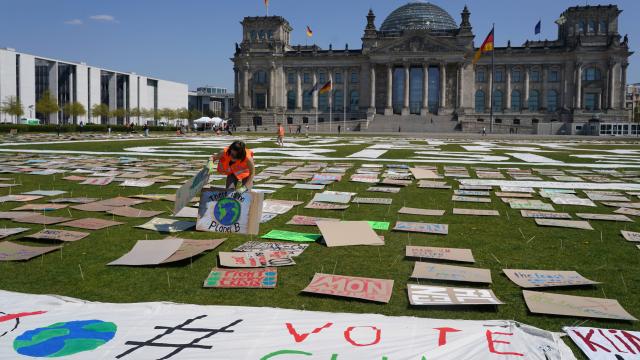In two years, Greta Thunberg went from anonymous teenager to international spokesperson for the youth climate movement. To be clear, Thunberg’s role as global phenom is an unwanted one, and she’s often used her platform to highlight other young adults fighting for a habitable planet. Yet the world remains fixated on her.
A new book makes it clearer than ever that she isn’t alone in trying to change the broken system that got us in this mess. United We Are Unstoppable is a collection of 60 essays by young people from pre-teens to twentysomethings curated by Bloomberg climate reporter Akshat Rathi that shows the true diversity of the new climate movement.
It’s easy to get lost in the big picture news of climate change and feel hopeless. In the past week alone, we’ve learned ice shelves are disintegrating, oil companies are leaving toxic messes unremediated, the natural world is dying, and the president is fixated on showers. Add in the impacts of coronavirus and police violence and how they intermingle with climate change, and you have a recipe for throwing up hands up in the air, saying “to hell with it,” and rebinging the entire season of Love Is Blind. Thankfully, United We Are Unstoppable saved me from this fate over the weekend.
[referenced id=”1227037″ url=”https://gizmodo.com.au/2020/07/the-future-earth-challenges-us-to-break-our-cycle-of-doom/” thumb=”https://gizmodo.com.au/wp-content/uploads/2020/07/01/blf0akj2rzx2gpwzdwjk-300×169.jpg” title=”The Future Earth Challenges Us to Break Our Cycle of Doom” excerpt=”In an era of the climate crisis, it’s easy to imagine things getting worse because that’s all we know.”]
The book’s 60 essays are written by writers from every continent on Earth (yes, including Antarctica). It’s this global perspective of young voices that makes this book so vital. The longest section of essays is from Africa.
Western countries have played the largest role in causing the climate crisis by pushing a path of development tied with fossil fuels. That’s left a wake of rising inequality that puts developing countries at a disadvantage and the gap will only grow as the climate crisis worsens. Africa, Asia, and Latin America are bearing the brunt of the impacts centuries of carbon dioxide and colonialism. At the same time, young adults are also being forced to live through the decisions made today about carbon pollution. If ever there were a time to listen to a variety of voices rather than the usual suspects and act on their recommendations, this is it.
The book’s essays pull no punches in calling out the crisis for what it is. Writing from Myanmar, 18-year-old Htet Myet Min Tun writes about his experience as a child with Cyclone Nagris that leveled large swaths of the country, saying “Even today I can hear the sound of the wind in my ears when I think about the tragedy.” He goes on to call climate change a violation of human rights and ends with a plea that the world take this moment to unite rather continue squabbling.
Further essays reenforce this idea of coming together and editorial notes also helpfully remind readers how world leaders are failing to do so currently. Following an essay by Iranian environmental engineer Iman Dorri, a footnote highlights how U.S. sanctions put forward by the Trump administration are wrecking Iran’s economy. That could in turn make it harder for the country to address the impacts of climate change.
But the book is far more than calls for leadership and coming together. It also shows kids and young adults are already taking action even beyond the high profile strikes and lawsuits. An essay from Cameroonian activist Nche Tala Aghanwi highlights a network of activists across Africa he helped build focused on evidence-based solutions while Indigenous activist Cricket Guest, who is based in Canada and talks about her work bridging “this gap that exists with outsiders understanding the importance of land defenders in this fight” against the climate crisis and extractive systems.
I hesitate to call the book a pick-me-up since there’s clearly a lot of work that still needs to be done. But for adults — or even more importantly, kids — trapped in a lockdown, it’s a reminder that we’re not alone. And that a better world is possible if we remember we’re all in this together, across all seven continents.
